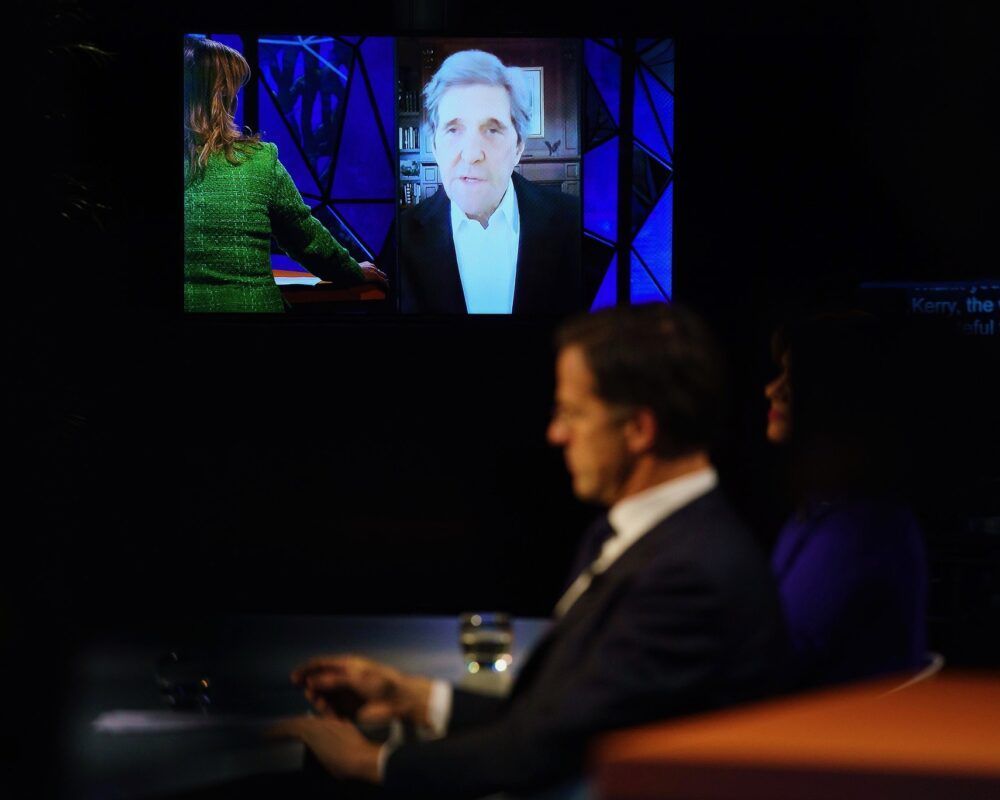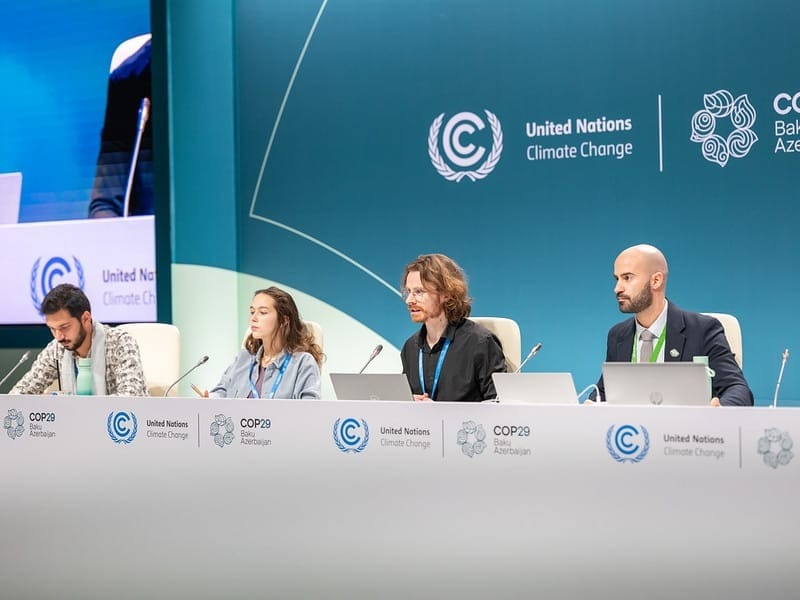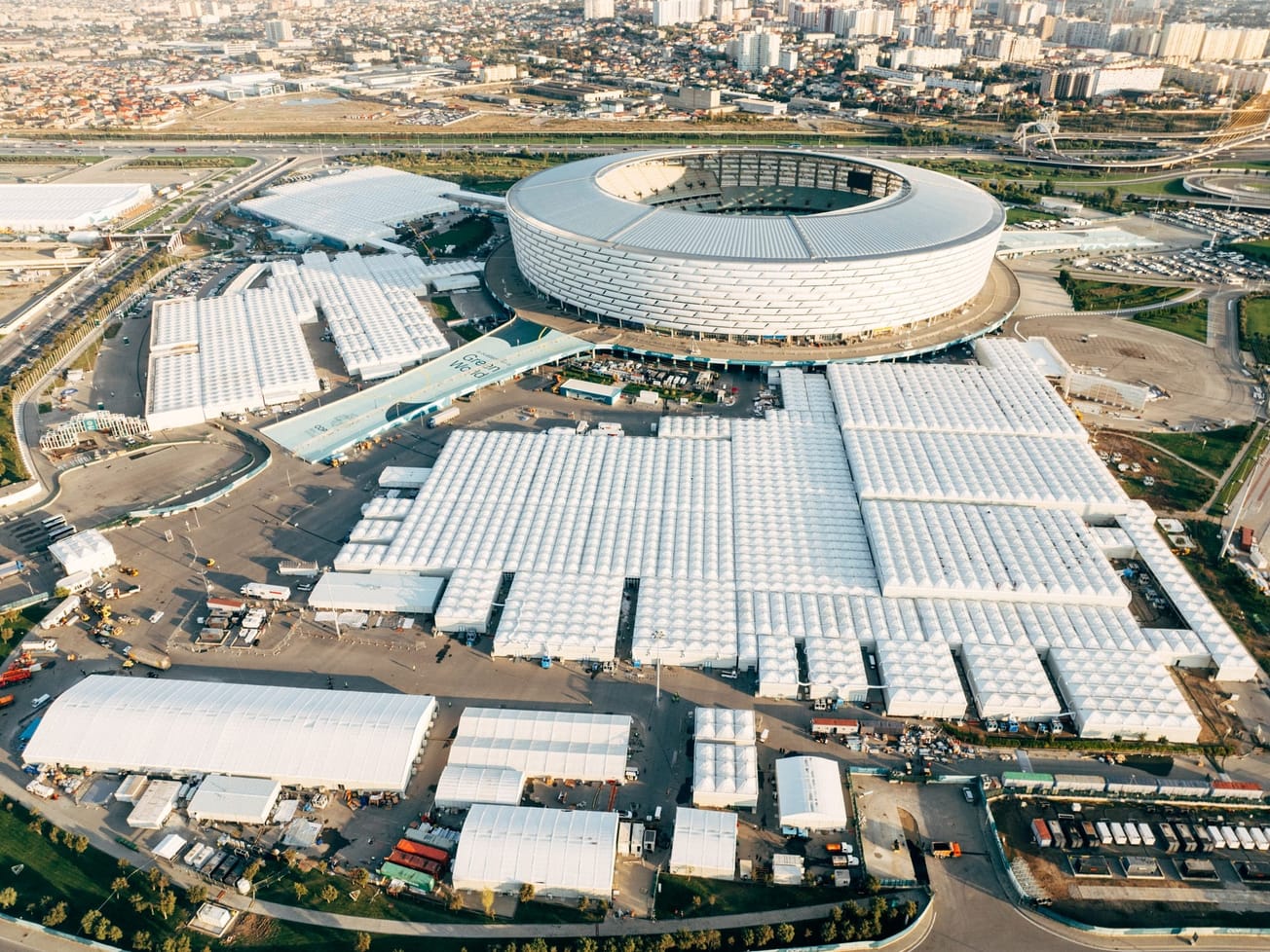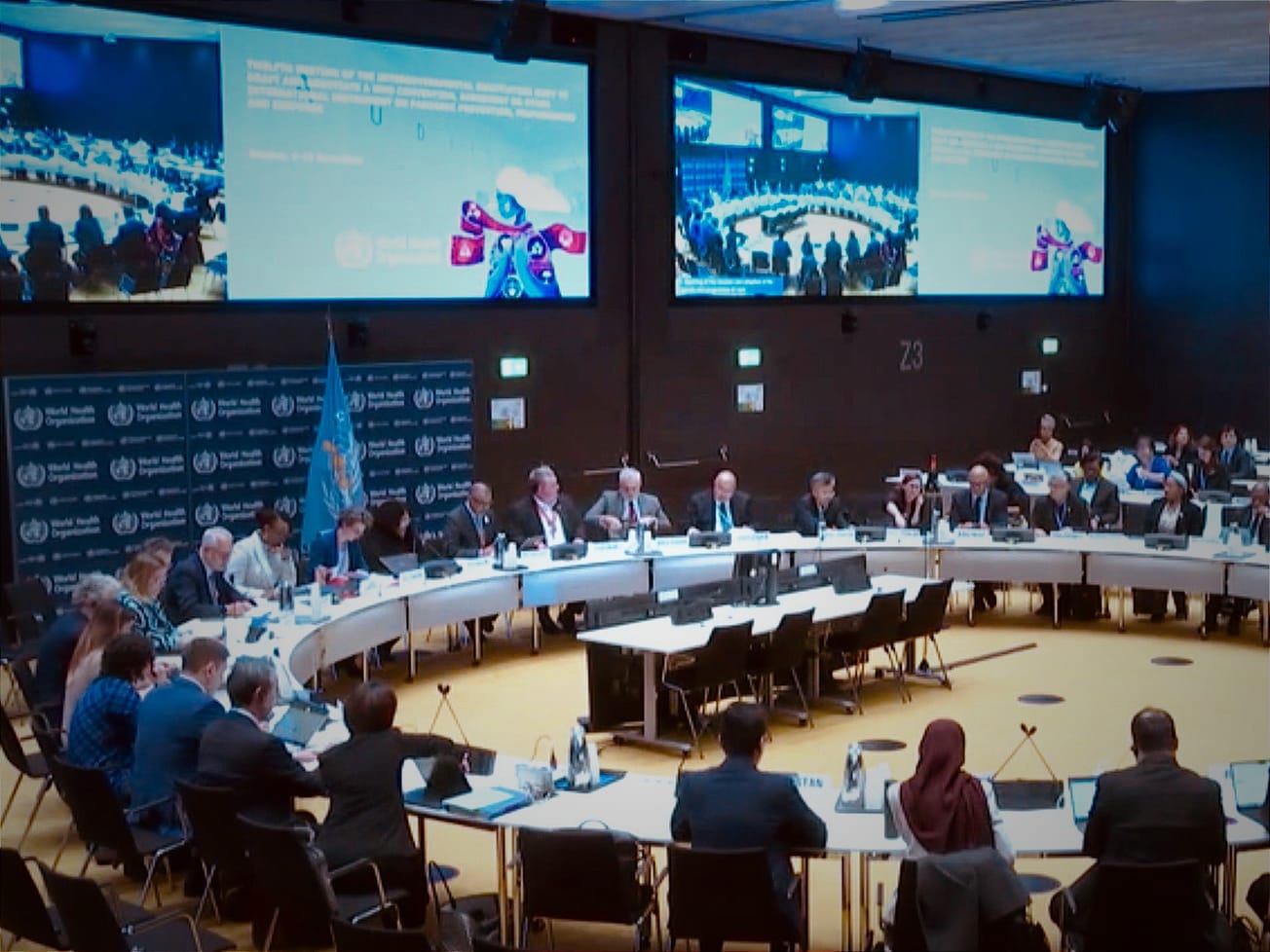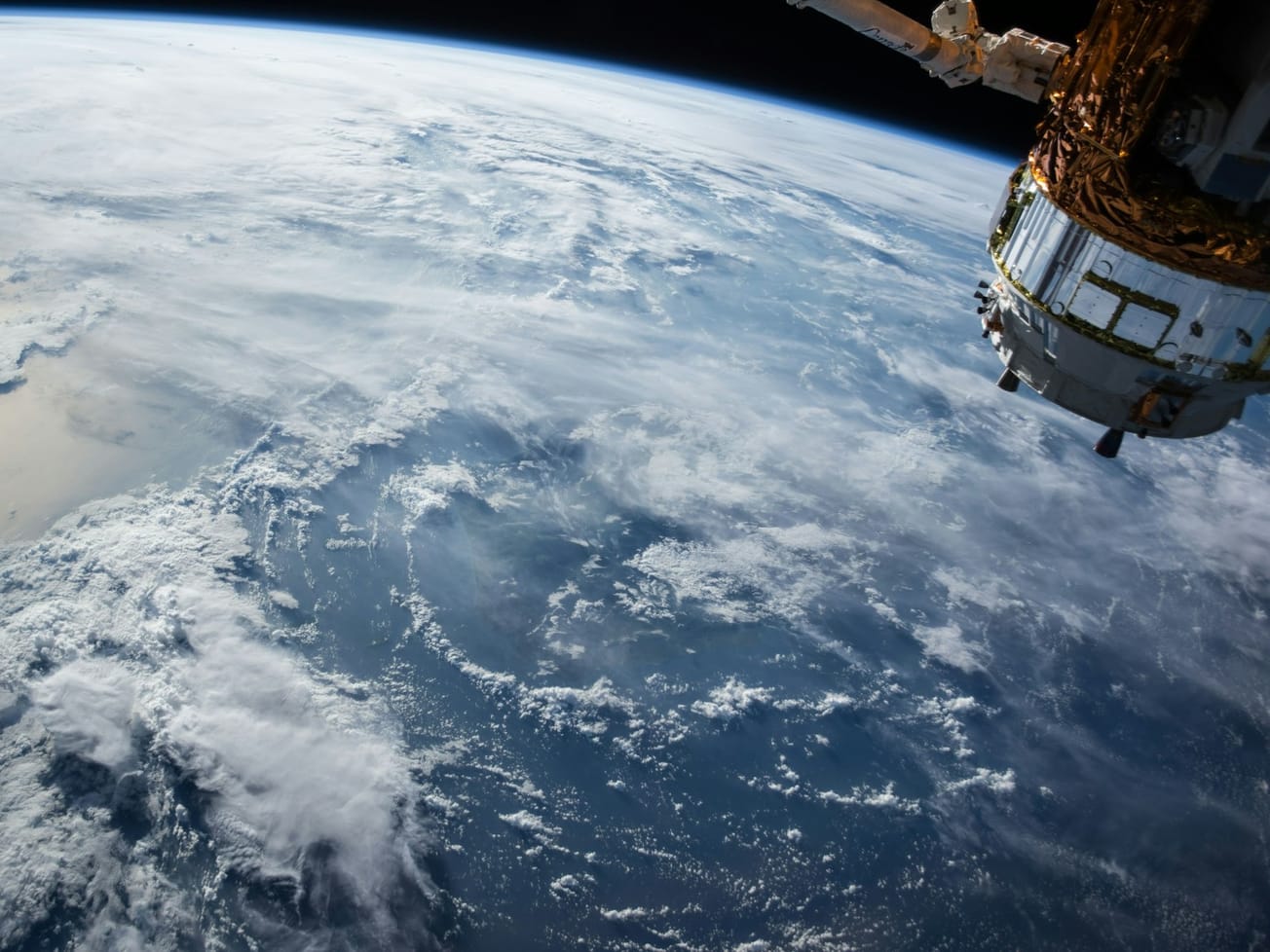An online global summit's mood at its opening on Monday was perhaps best reflected at the sight of U.N. Secretary-General António Guterres clearly beaming after John Kerry, the new U.S. presidential climate envoy, pledged to restore American leadership in the fight against global warming.
Guterres had kicked off the Climate Adaptation Summit 2021 — hosted by the Netherlands to accelerate global aid for dealing with inevitable climate effects — by urging all donor nations and multilateral banks to donate half their climate financing for more adaptation and resilience among developing countries. "Support for adaptation and resilience is a moral, financial, economic and social imperative," he said.
Kerry, named by President Biden to lead America's reemergence as a major force in global climate politics, began by expressing "regret" at his nation's absence under former President Trump, who was skeptical of climate change and withdrew the United States from the 2015 Paris Agreement to lower emissions of carbon dioxide, methane and other heat-trapping gases in the atmosphere. Biden reversed that decision on his first day in office last week.
In April 2016, Kerry, as U.S. secretary of state, had held a granddaughter in one arm as he signed the agreement on behalf the United States at U.N. headquarters in New York. The Paris accord's goal is to prevent average global temperatures from rising more than 2 degrees Celsius above pre-industrial levels, or 1.5 degrees C. if possible. The world already warmed by about 1 degree, so the choice is between one degree or a half-degree more warming.
Biden signed more than a dozen executive orders, memorandums and proclamations from the Oval Office, notably including moves to rejoin the World Health Organization and the Paris climate treaty. Rejoining the treaty, which does not require approval by the U.S. Congress, takes effect after a 30-day notice period.
“We’re proud to be back. We come back, I want you to know, with humility, for the absence of the last four years, and we’ll do everything in our power to make up for it," Kerry told the online climate summit of world leaders and proponents of climate action.
"Now, without question, I think everybody understands this, the best adaptation is to treat the crisis as the emergency that it is, and do more to hold the Earth's temperature increase to the Paris-stated 1.5 degrees," he said. "I think scientists are more and more landing on the 1.5 as a critical figure."
The summit culminates work by the Global Commission on Adaptation, which was established by Prime Minister Mark Rutte of the Netherlands and leaders of 22 other nations, and launched at The Hague in 2018 by Guterres' predecessor, Ban Ki-moon, the U.N. secretary-general from 2007 to 2016. Its mandate was "to accelerate adaptation by elevating the political visibility of adaptation and focusing on concrete solutions."
Ban said the COVID-19 pandemic demonstrated "the power of global partnership and collaboration" in overcoming challenges. "If we can fight this pandemic, we can do this to help hundreds of millions of people to adapt to climate change," he said. "All of us, all leaders, have to take his opportunity to save humanity."
⚡️ 'Opening session'https://t.co/QdzqwQGO0R
— CASsummit2021 (@CASsummit2021) January 25, 2021
Scientists warn of inaction
Kerry's remarks were well-received by the summit's like-minded participants, most notably Guterres, who visibly broke into a wide grin as Kerry spoke of the United States' commitment to helping the next round of U.N.-brokered global climate negotiations take real action that fulfills the Paris climate treaty's aims.
"So our urgent reduction of emissions is compelled by public conscience and by common sense. President Biden has made fighting climate change a top priority of his administration," Kerry said. "We have a president now, thank God, who leads, tells the truth, and is seized by this issue. And President Biden knows that we have to mobilize in unprecedented ways to meet a challenge that is fast accelerating, and he knows we have limited time to get it under control."
Guterres recalled that nations committed to mobilizing US$100 billion a year in climate financing for improving developing nations' adaptation and resilience. Among the chief uses of that financing would be to help cities become more resilient amid rising temperatures; anticipate ways that farmers, ranchers and others involved in agriculture can anticipate droughts and salinization; and provide more protections for coastal communities to deal with sea-level rise.
“Adaptation cannot be the neglected half of the climate equation," he said, while also urging more support for nations to adopt early warning systems and risk-based decision making. "Just 24 hours warning of a coming storm or heat wave can cut the ensuing damage by 30%."
The commission, made up of 32 political, business and scientific leaders plus the heads of prominent international organizations, was led by Ban along with Bill Gates, co-chair of the Bill and Melinda Gates Foundation, and Kristalina Georgieva, managing director of the International Monetary Fund. Since its mandate ended last year, the commission has had its work carried out by the Global Center on Adaptation, a Netherlands-based international organization.
Georgieva said global economic output could expand by an average of 0.7% annually over the next 15 years, creating millions of jobs, if there is a steady rise in carbon prices and investment in green infrastructure. She said IMF views climate change as "a fundamental risk for economic and financial stability, and we see climate action as an opportunity to reinvigorate growth, especially after the pandemic, and to generate new green jobs."
In 2019, IMF recommended the world adopt a steep global tax on carbon emissions within a decade as the most effective way to reduce heat-trapping gases and slow global warming. It said imposing a global tax that rises to US$75 per ton of carbon emissions by 2030 could reduce carbon emissions by 35% over the next decade and help limit temperatures to an increase of 2 degrees.
Rutte, who less than two weeks ago resigned with his entire Cabinet to accept political responsibility for a Dutch scandal involving investigations into child welfare payments that falsely labeled thousands of parents as fraudsters, told the virtual climate summit that the impact will be "disastrous" if the world fails to deal with and adapt to the consequences of an overheating planet.
"Business as usual is no longer an option for my country and others," said Rutte, whose along with his center-right People's Party for Freedom and Democracy is leading in the polls for a fourth term in a general election to be held in two months. "I hope this summit will set the world on a path towards action to accelerate adaptation and resilience worldwide."
The two-day online summit, which concludes on Tuesday, also drew opening speeches from leaders such as German Chancellor Angela Merkel, French President Emmanuel Macron, British Prime Minister Boris Johnson, Indian Prime Minister Narendra Modi and Chinese Deputy Prime Minister Han Zheng.
More than 3,000 scientists from 130 nations, including five Nobel laureates, issued a statement that the planet is fast overheating and "already experiencing major disruptions from more intense droughts, fires, heat waves, floods, destructive tropical cyclones and other extreme events."
“Unless we step up and adapt now," they wrote, "the results will be increasing poverty, water shortages, agricultural losses and soaring levels of migration with an enormous toll on human life. We must avoid inaction where those who are not rich lose out, and cannot react in the timeframe necessary and without resources to make the required changes."

